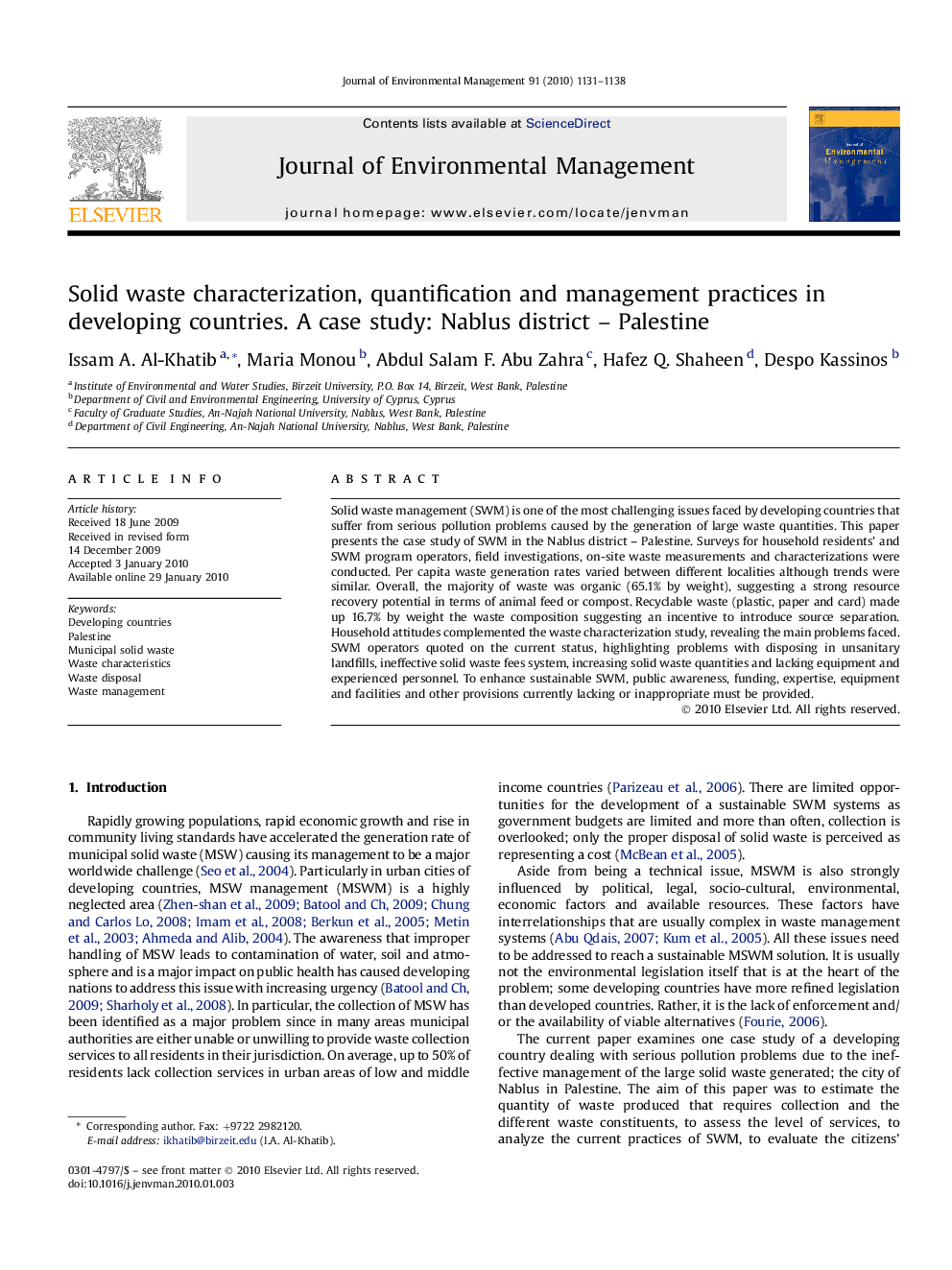| Article ID | Journal | Published Year | Pages | File Type |
|---|---|---|---|---|
| 1057404 | Journal of Environmental Management | 2010 | 8 Pages |
Solid waste management (SWM) is one of the most challenging issues faced by developing countries that suffer from serious pollution problems caused by the generation of large waste quantities. This paper presents the case study of SWM in the Nablus district – Palestine. Surveys for household residents' and SWM program operators, field investigations, on-site waste measurements and characterizations were conducted. Per capita waste generation rates varied between different localities although trends were similar. Overall, the majority of waste was organic (65.1% by weight), suggesting a strong resource recovery potential in terms of animal feed or compost. Recyclable waste (plastic, paper and card) made up 16.7% by weight the waste composition suggesting an incentive to introduce source separation. Household attitudes complemented the waste characterization study, revealing the main problems faced. SWM operators quoted on the current status, highlighting problems with disposing in unsanitary landfills, ineffective solid waste fees system, increasing solid waste quantities and lacking equipment and experienced personnel. To enhance sustainable SWM, public awareness, funding, expertise, equipment and facilities and other provisions currently lacking or inappropriate must be provided.
